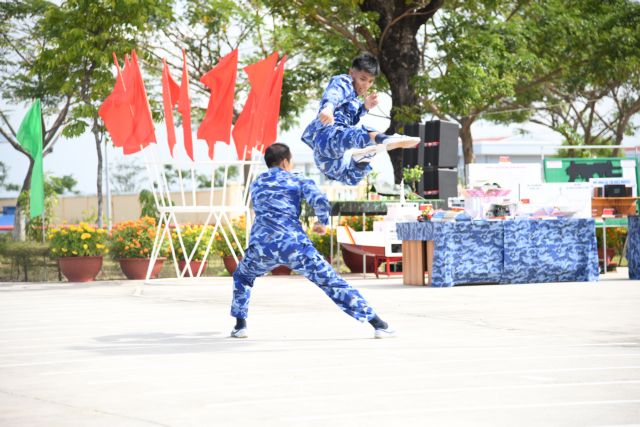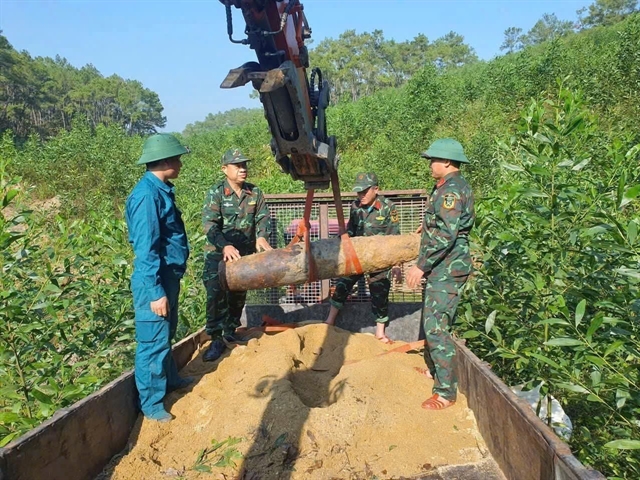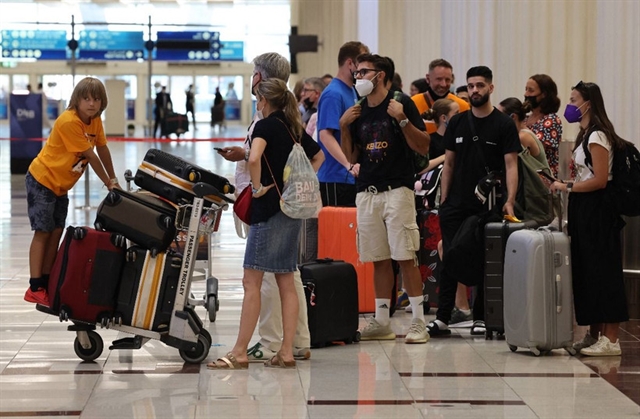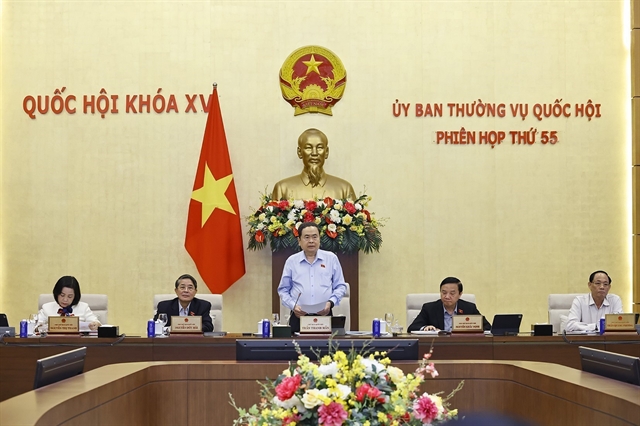 Politics & Law
Politics & Law

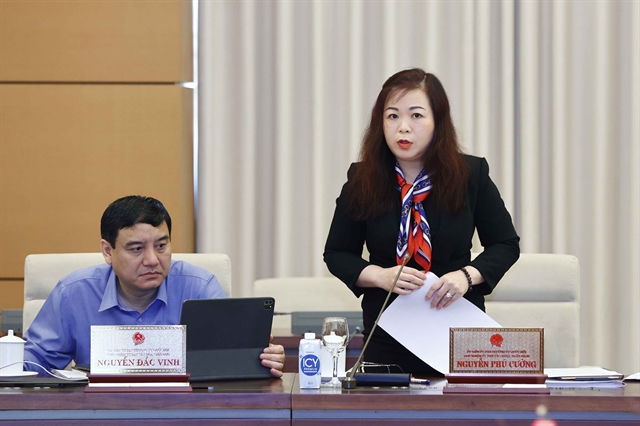
|
| Deputy Chairman of the NA's Finance and Budget Committee Vũ Thị Lưu Mai delivers a speech at the session on Wednesday morning.— VNA/VNS Photo Doãn Tấn |
HÀ NỘI — The National Assembly (NA)'s Finance and Budget Committee has agreed with the Government’s proposal to allow HCM City to continue implementing piloting special mechanisms and policies for developing the city until December 31, 2023.
The agreement was made on Wednesday morning at the NA Standing Committee’s 16th session while the standing committee assessed a report summarising the implementation of Resolution No. 54/2017/QH14 in the city.
The finance and budget committee also suggested the Government direct the evaluation of piloting mechanisms and policies and report to the National Assembly according to regulations.
Speaking at the session, National Assembly Chairman Vương Đình Huệ also expressed agreement with the proposal to allow the city to continue implementing the resolution.
He also added that it should be extended for a period of at least a year.
Huệ said the resolution is essential and the implementation of the resolution showed that many mechanisms and policies have supported the socio-economic development of big cities.
Right resolution
Under the Government's report, applying the resolution, the People's Council of the city has decided to approve 32 projects that have changed the use purpose of agricultural land with a total area of 1,843 hectares.
It helps to shorten the time and speed up the implementation of the projects, creating momentum for the city’s socio-economic development.
Regarding investment management, the council has agreed to invest in five projects, using the city budget, with a total investment capital of over VNĐ12.9 trillion (US$541.7 million).
The council also adjusted the investment policy of one project to build a road, connecting Trần Quốc Hoàn - Cộng Hòa in Tân Bình District with total investment increasing from VNĐ1.4 trillion ($58.7 million) to VNĐ4.84 trillion ($203 million).
The mechanisms and policies shortened the time for submission of public investment projects, assisted the city in allocating capital for public investment projects, accelerated disbursement of public investment capital, and helped to effectively use capital and put the project into operation soon, contributing to the city’s socio-economic development.
Deputy Chairman of the finance and budget committee Vũ Thị Lưu Mai said after five years of implementation, including two years affected by the COVID-19 pandemic, the city's economy has continuously grown at a high rate (except during the pandemic period).
After overcoming the peak of the pandemic, the city's economy recovered quickly. The average growth in the 2016-19 period reached 7.72 per cent, 0.5 per cent higher than in 2011-15, she said.
The first months of this year recorded recovery with a growth of 1.87 per cent in the first quarter, 5.73 per cent in the second quarter, and 3.82 per cent on average in 6 months. The ratio of social investment capital to Gross Regional Domestic Product (GRDP) increased over the period. It reached 32.29 per cent in the 2016-20 period; about 1.22 per cent higher in 2011-15.
Thanks to the mechanisms and policies, the city's spending of additional income for civil servants and public employees according to work performance increased by 0.6 times in 2018, 1.2 times in 2019 and 1.8 times in 2020.
Shortcomings
However, the finance and budget committee also said that there are still shortcomings; especially a number of policies related to land, finance and State budget which have been slow in implementation.
Vũ Hồng Thanh, Chairman of the NA’s Committee for Economic Affairs, said due to many reasons, including the heavy impacts of the pandemic, some policies were implemented slowly and ineffectively.
About limitations and inadequacies when implementing land policies, Thanh told the city to clarify where the obstacles are so that relevant ministries and sectors could help the city remove them.
Võ Văn Hoan, Vice Chairman of the People's Committee of the city, said: “There are things the city wants to do, but the city still considers because the things are new and difficult and there are conflicting opinions.”
There are things that the resolution has permitted but it is not simple to do that, he said.
For example, when the city tried to recall agricultural land of over 10 ha with a population of 10,000 to 15,000 to deploy processing zones, industrial parks or technology parks, it became entangled with the procedures and provisions of the Investment Law, he said.
The city is now preparing a new draft resolution to submit to the Government and the National Assembly to mobilise more resources, not just resources from the State to serve the city’s development, he said.
Also at the session, the participants discussed results of the three-year implementation of the Resolution No. 115/2020/QH14 on specific financial and budgetary mechanisms and policies for Hà Nội.— VNS

